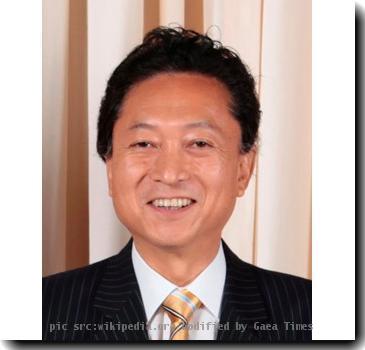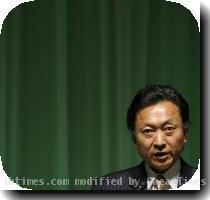Exit polls: Japan’s ruling party suffers heavy defeat in upper house, hurt by tax hike talk
By Mari Yamaguchi, APSunday, July 11, 2010
Exit polls: Japan ruling party loses on tax talk
TOKYO — Battered by voter backlash over the prospect of higher sales taxes, Japan’s ruling Democratic party was headed to a heavy defeat in a parliamentary election Sunday, media exit polls showed, dealing a major setback to the young government.
The projected losses were worse than expected and will make it difficult for Prime Minister Naoto Kan’s party to pass bills and forge ahead with plans to slash wasteful government spending, improve transparency and put more cash in the hands of consumers
Analysts said Kan, in office only a month after his predecessor abruptly quit, clearly hurt his party’s chances by proposing Japan raise its 5 percent sales tax to as high as 10 percent in coming years to rein in the country’s bulging public debt, particularly as its population ages and shrinks.
“It’s the taxes. Kan threw that out suddenly, and it really hurt them. It cost them the votes of women, and particularly housewives who look after family finances,” said Tomoaki Iwai, political science professor at Nihon University in Tokyo.
Public broadcaster NHK predicted that Kan’s party won fewer than 50 contested seats in the upper house election, down from 54 before the polls. Other TV stations project the party garnered 47 to 48 seats.
The Democrats’ tiny coalition partner, the Peoples’ New Party, got no seats, the exit surveys showed.
Official results are not expected until Monday.
But the projections indicate the Democrats will lose their 122-seat majority with their tiny coalition partner in the 242-seat upper house. The election, in which half the seats in the upper chamber were up for grabs, won’t directly affect the Democrats’ grip on power because they control the more powerful lower house of parliament.
To avoid parliamentary gridlock, the Democrats, which swept to victory last August and unseated the long-ruling conservative Liberal Democratic Party, will probably seek new partners to form a coalition.
The LDP, now the main opposition party, appears to have done better than expected, winning 48 to 50 seats, according to media outlets’ predictions. That would give them 81 to 83 seats in the chamber, up from 71 before the election.
Soon after taking office in early June, Kan came out strongly with warnings that Japan needed to take dramatic steps to reduce its public debt, which is more than twice the nation’s GDP — or face a Greece-like fiscal crisis.
But his initially buoyant approval ratings slid after he proposed that Japan seriously consider doubling its sales tax, prompting him to backpedal on the tax issue. In the waning days of the campaign, Kan promised that any tax increase wouldn’t happen until after the next lower house election, which must be held within three years, saying he wanted a public mandate for any decision on taxes.
Still, the damage appeared to have been done among voters who are struggling in a stagnant economy with high joblessness.
Democratic party officials acknowledged the tax issue had hurt the party badly.
“The election results became extremely severe because we had the problem with the tax issue,” said Goshi Hosono, a party executive. “The way Prime Minister Kan brought it up was a little bit abrupt, and in the beginning we had a slight discordance within ourselves.”
He said it was still too early to discuss responsibility of Kan and any other party executives over the election results.
The Democrats’ setback may also reflect a general disillusionment among voters who handed the party a landslide victory last year amid high hopes for change and more accountability in politics.
While the Democrats scored points for freezing many public works projects viewed as wasteful, the public was sorely disappointed by former Prime Minister Yukio Hatoyama’s involvement in a funding scandal and his failure to keep a campaign promise to move a contentious U.S. Marine base off the southern island of Okinawa.
“People had very high hopes of the Democrats, and they feel betrayed,” said Iwai, the analyst. “They wanted cleaner politics, and there were money scandals.
“The Democrats tend to talk the talk, but they haven’t backed it up,” he said. “People don’t necessarily want the Liberal Democrats back, but they are expressing their dissatisfaction with the Democratic Party. This is a vote against the ruling party, not a vote for the opposition.”
Associated Press Writer Eric Talmadge and Malcolm Foster contributed to this report.
Tags: Asia, East Asia, Japan, Parliamentary Elections, Political Organizations, Political Parties, Tokyo, Yukio Hatoyama

